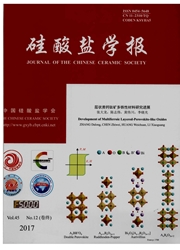

 中文摘要:
中文摘要:
研究了 NaCl 浸泡液浓度、浸泡时间、养护时间、浸泡温度和压滤压力对水泥基材料孔溶液中氯离子浓缩的影响。结果表明:在 NaCl 溶液中浸泡 56 d 后,水泥基材料试件孔溶液中自由氯离子浓度与浸泡液的氯离子浓度有很好的线性关系。当浸泡液浓度≤0.3 mol/L 时,自由氯离子浓度比浸泡液的氯离子浓度至少高 40%;当浸泡液浓度〉0.3mol/L,自由氯离子浓度只稍微高出浸泡液的氯离子浓度。浸泡后的前 63d,自由氯离子浓度随浸泡时间增加逐渐增加,随后,自由氯离子浓度开始随浸泡时间增加而降低。孔溶液中氯离子浓度随养护时间增加而减少。浸泡温度和压滤压力对自由氯离子浓缩没有太大的影响。双电层和试样孔结构压滤前后变化是水泥基材料孔溶液中的自由氯离子浓度升高的主要原因。
 英文摘要:
英文摘要:
This work investigated the effects of NaC1 soaking concentration, soaking time, curing time, soaking temperature and pore solution expression pressure on the free chloride ion condensation in pore solution of cement-based materials. The results show that free chloride ion concentration in pore solution exhibits a good linear relationship with the chloride ion concentration in soaking solutions after 56 d immersion. The free chloride ion concentration was 40% greater than that of the exposured solution when the chloride ion concentration in the exposed solution was less than 0.3 mol/L, and was slightly higher than that of the exposured solution when the chloride ion concentration in the exposed solution was greater than 0.3 mol/L. The free chloride ion concentration increased with soaking time before an immersion period of 63 d, thereafter, decreased with soaking time. The chloride ion concentration in pore solution decreased as the curing time increased. Soaking temperature and pressure did not affect free chloride ion concentration. The theoretical analyses indicated that the electric double layer and change of pore structure caused by pressure could be due to the free chloride ion condensation.
 同期刊论文项目
同期刊论文项目
 同项目期刊论文
同项目期刊论文
 期刊信息
期刊信息
